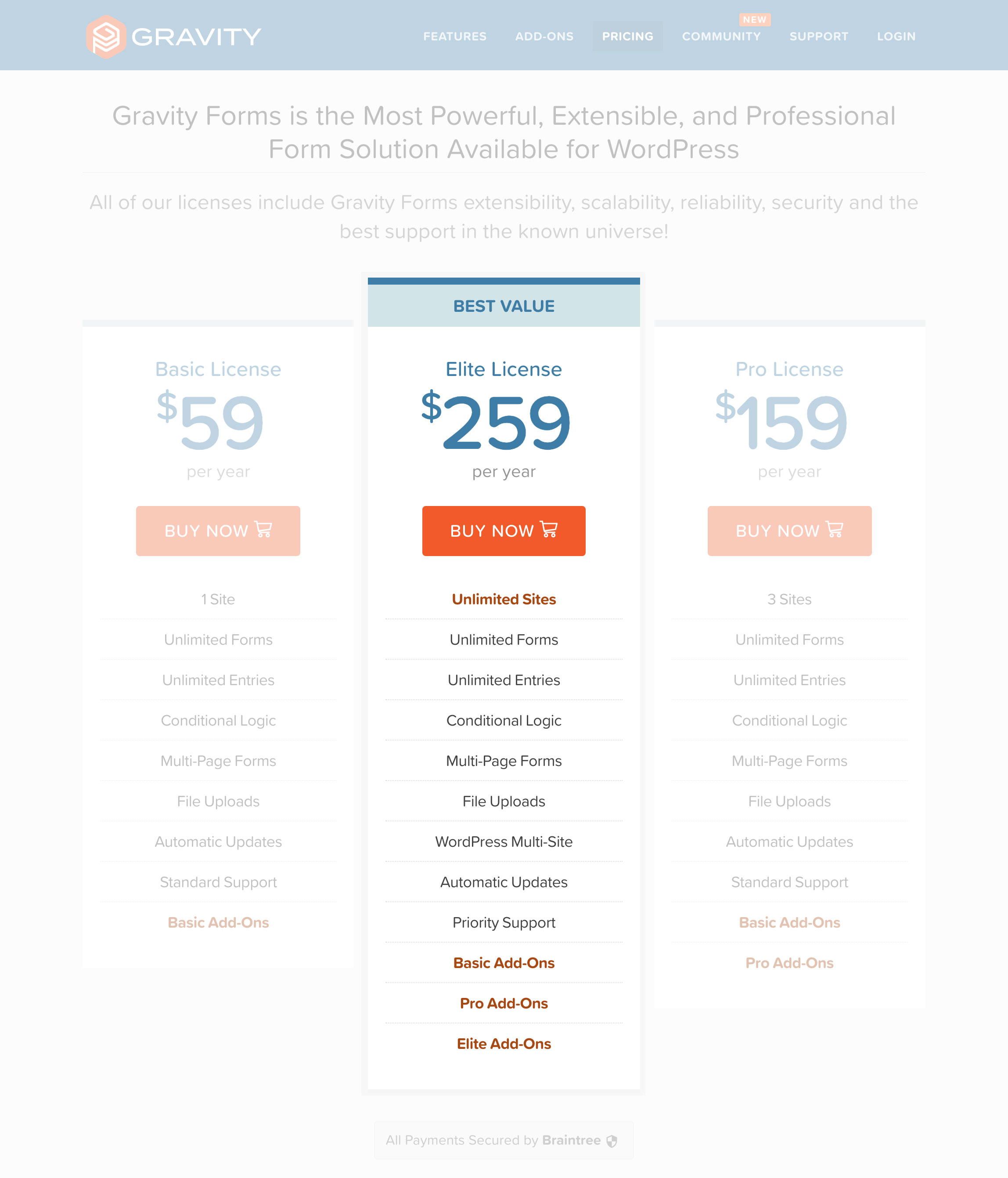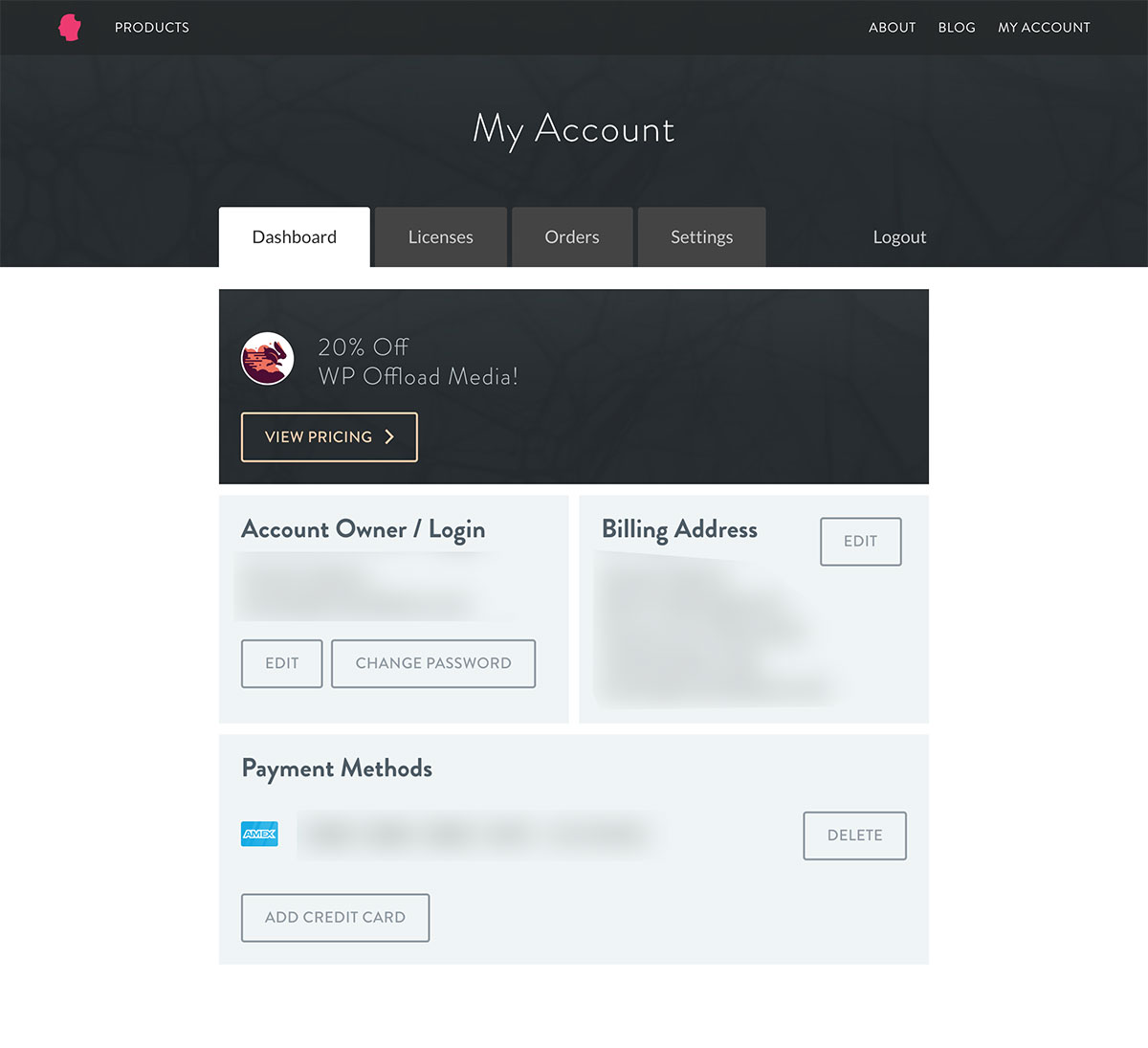Let’s look at the implications of using premium WordPress plugins on client projects including what makes the most sense for license fee handling.
When a client approaches with a new build, typically the quoting process involves diving into the project scope and getting a game plan together as to how the build would be approached and estimating the time involved to execute. It’s common to run into scenarios where utilizing a premium plugin just makes the most sense based on project requirements. However, because it’s far more prevalent for premium plugins to have recurring license fees than be one-off payments, freelancers and agencies have to account for how these fees will be handled. There are a couple different ways to go about this.
Rolling costs into maintenance plans
Many WordPress agencies and freelancers offer maintenance agreements to their clients. Maybe these agreements include monthly plugin updates, regular backups, possible support hours, etc. If a build includes a premium license fee, this fee could be wrapped up into the maintenance support agreement.
Pros of this method are that you can take care of licensing yourself and you aren’t left waiting on the client to potentially get what is needed there. Some clients couldn’t care less what you’re using to best get the job done and are paying you for your expertise and may appreciate just having things handled in this area.
Cons of this approach are that it also necessitates having a plan in place for if that support agreement ends. What happens to the plugin license if a client terminates a maintenance agreement? Figuring out a transition process there would be a good thing to include in any maintenance plan contract. Understandably, you also need to be very organized about what plugin licenses your client projects require that you’re handling to ensure they don’t lapse. Many premium plugins having subscriptions to auto-renew plugin licensing fees but some rely solely on email notifications and manual actions so it’s important to stay on top of things in this area.
Developer or lifetime licenses for premium plugins
Many premium plugins offer unlimited site licenses or lifetime licenses for plugins. If you or your agency are regularly relying on a premium plugin, it may make sense to invest in these license types vs. relying on licensing projects individually.

Pros of this route are really similar to the maintenance agreement approach in that you are no longer locked to waiting on a client’s move to get the plugin access needed. Some use a developer license but still charge a client the equivalent of individual site licensing fees. Some outline included premium plugin licenses in proposals as added value of their development & support services.
Cons of this approach are also similar to the maintenance agreement approach in that it requires having a transition process in place if you no longer have a client relationship. Are they free to keep using your developer license keys?
There are also premium plugins that serve more utility functions that it may not make sense to pass the fee onto the client and developer license utilization is what makes the most sense. For example, we’re big fans of WP Migrate DB Pro and we frequently use it to shoot databases between local environments and staging or production environments. This isn’t something outlined in a proposal or a tool we request the client purchase. It’s more a vital piece of our developer toolbox that we use during the build process. Despite using it on client projects, a developer license just makes the most sense here.
Client-owned premium plugin license fees
It’s possible to approach premium plugin licensing fees by having a client purchase the required plugins directly. They then own the licenses for the plugins utilized on their site.
Pros of this method are the client can seek support directly from the plugin’s team, if needed. If you aren’t retaining the client in a maintenance capacity, giving them the ability to have a support point of contact on plugin issues could be a big positive. Also, the sheer payment logistics are simplified since the client is directly handling billing so you’re not fielding that then passing the cost on. Additionally, you can take advantage of affiliate programs for plugin recommendations to clients.
One con of this method is having to wait on the client for plugin purchases. Some clients can drag their feet here and some have a long approval chain to get through before an expense is cleared. It can slow things down substantially. You are also left a bit in the dark as to whether a client is renewing their licensing, as recommended.
Transferring premium plugin license fees
Since the biggest con for clients purchasing their plugin licensing fees is the potential slowdown of the initial purchase. It’s possible to field the initial plugin purchase and then transfer the license to the client. Initial plugin licensing fees can be built into your project proposal along with the plan for license transfer.
Pros this approach has include nearly all of the previous client-owned license pro points. It also eliminates having to wait on the client for initial plugin licensing.
Cons of this approach are the logistics of transferring licenses. It’s easier with some plugins than others. Most have a member area where it’s relatively easy to change billing info and contact info for the license key holder. If going this route, we’d recommend having a clear timeline for when this transfer occurs and ideally having it occur before a project handoff, especially if you’re not maintaining a support agreement with the client. If it’s a year down the line when the plugin license is expiring, it may be harder to track down the information needed to transfer the license.

Accounting for premium plugin usage
We can’t say that any one approach above is the best way to handle premium WordPress plugins on client projects so it more comes down to what you prefer. Accounting for initial plugin costs and recurring plugin costs, how they’re to be handled and who will be handling them is an important consideration in any project proposal and/or subsequent ongoing maintenance agreement, regardless of your preferred route, however.

